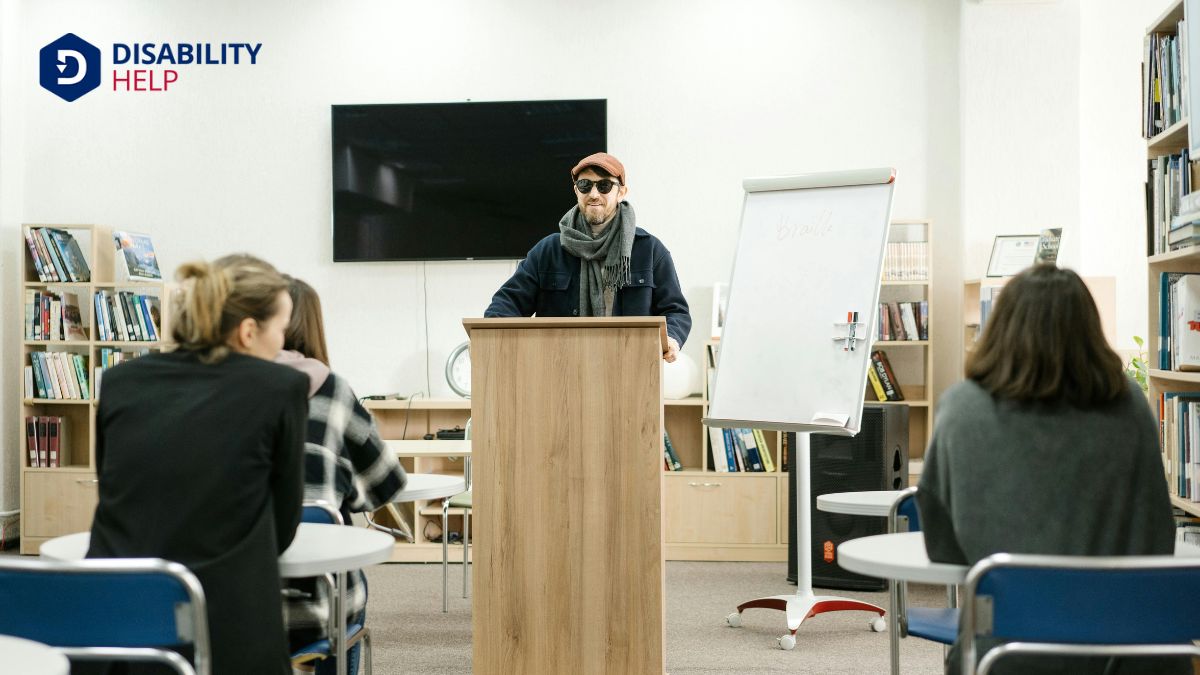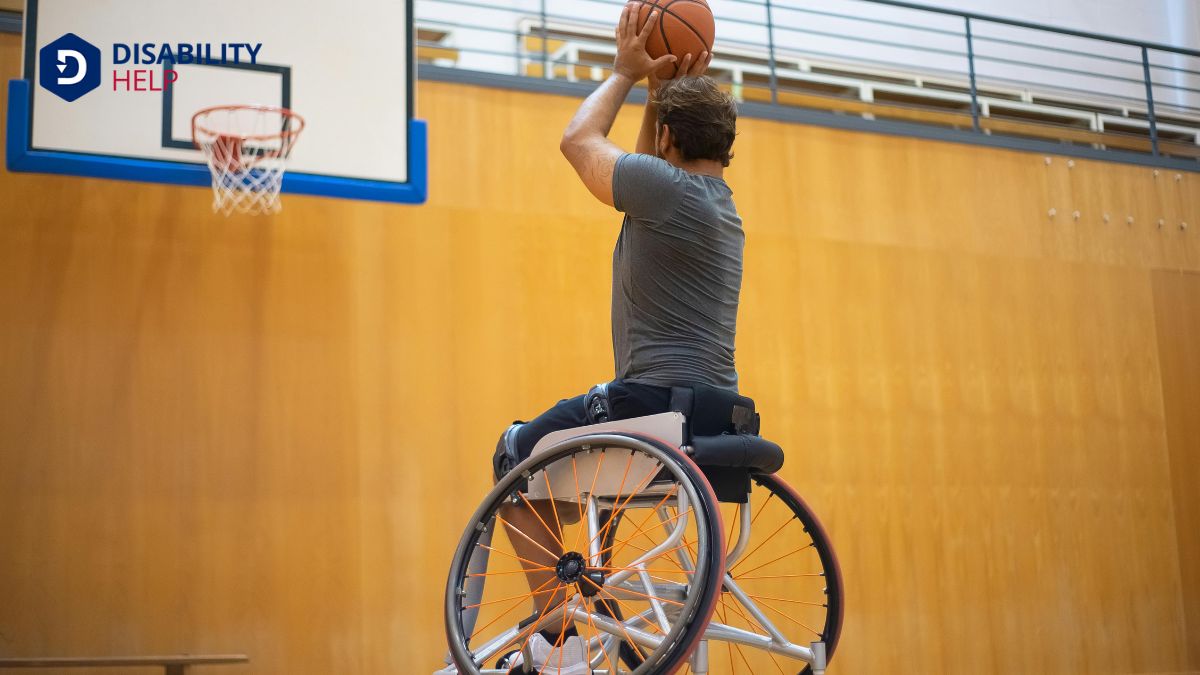When we say someone is 100% permanently disabled, we're talking about severe, enduring limitations that affect their daily life and work, making self-care and social interactions challenging. Medical evaluations assess the significant impact of physical or mental conditions. This status qualifies individuals for financial benefits such as SSDI or SSI, healthcare like MedicareA U.S. federal health insurance program for people aged 65 and older, and for some younger people wi..., and other support programs. It also guarantees legal protections against discrimination. Managing life with these limitations involves embracing support systems and celebrating small victories. By exploring further, we can understand how these factors influence daily life and available resources for support.
Key Takeaways
- 100% permanent disability involves complete impairmentA loss or abnormality of a body structure or function, whether physical, mental, or sensory, often a... with severe limitations on work, self-care, and social interactions.
- It qualifies individuals for specific benefits like SSDI, MedicaidA U.S. government program that provides health coverage to eligible low-income individuals, includin..., and various support programs.
- Legal rights include anti-discrimination protections and eligibility for assistance services.
- Medical evaluations assess the disability's impact on daily life and work capabilities.
- Challenges include finding support, managing communication, and balancing independence with needed assistance.
Definition and Criteria
When we discuss being "100% permanently disabled," we're delving into a subject that requires clear understanding. It's essential to grasp what this status entails. Essentially, "100% permanently disabled" refers to a condition where an individual's ability to carry out daily activities is completely impaired, with no expectation of recovery. This isn't just about minor inconveniences; it's about significant limitations that impact one's overall quality of life.
We must comprehend the criteria involved in this designation. Generally, it demands a thorough analysis of the person's physical or mental impairments. The criteria can vary depending on the governing body or institution. Typically, they encompass severe limitations on one's ability to work, perform self-care, and engage in normal social interactions.
It's not simply a temporary state; it's an acknowledgment that the condition is enduring and unyielding.
This status often results in eligibility for specific benefits designed to support those who can no longer sustain themselves due to their disabilities. By understanding the definition and criteria, we can better appreciate the gravity of what it means to live with such a significant designation.
Medical Evaluation Process

As we start to explore the medical evaluation process, let's focus on how standards for disability assessment guide our understanding. Medical professionals play a vital role in evaluating the evidence and documentation we provide. Together, we'll navigate this process to make sure we're fully prepared for what lies ahead.
Criteria for Disability Assessment
Understanding the standards for disability assessment is crucial for anyone undergoing the medical evaluation process. We want to make sure that we're fully prepared and informed about what'll be considered. This assessment involves evaluating how our physical or mental impairments impact our daily life and ability to work. It's imperative to know that each condition is unique, and the severity, duration, and prognosis are all taken into consideration.
One key factor is the ability to perform substantial gainful activity (SGA). If our impairments prevent us from engaging in SGA, we might meet the criteria for being classified as disabled. Additionally, the evaluation considers how our condition affects basic work-related activities like walking, standingThe legal right to bring a lawsuit, which requires that the individual bringing the suit has a direc..., communicating, and cognitive functions. By understanding these functional limitations, we can better articulate our struggles during the evaluation process.
Furthermore, documentation plays a significant role. We need to provide detailed medical records that clearly outline our condition, treatment history, and any functional limitations we experience. Gathering these records ensures that our case is accurately represented.
Role of Medical Professionals
Medical professionals play a pivotal role in the disability evaluationThe process of assessing an individual’s physical or mental impairments to determine eligibility f... process, as they provide the expert assessments and documentation that guide decisions. Our journey to understand what constitutes 100% permanent disability begins with these professionals. They evaluate our medical conditions, consider the severity, and determine how our daily lives are impacted. These evaluations help establish whether we're truly unable to work or perform basic activities.
When we first approach medical professionals, they conduct a thorough examination. They'll review our medical history, perform necessary tests, and observe how our conditions affect our physical and mental functions. Their insights are invaluable because they're rooted in years of training and experience. By relying on their expertise, we ensure that the evaluation process is both fair and all-encompassing.
Moreover, medical professionals often collaborate with us, explaining their findings in a clear manner. This helps everyone involved understand the implications of a diagnosis. Their role extends beyond just assessments; they also provide guidance on potential treatments or therapies that might improve our circumstances. By trusting their expertise, we can navigate the disability evaluation process with more confidence and clarity, ensuring our situation is accurately represented.
Documentation and Evidence Required
To successfully navigate the medical evaluation process for determining 100% permanent disability, we need to gather thorough documentation and evidence. This documentation serves as the cornerstone of our case, providing a detailed picture of our health condition and its impact on daily life.
First, we should obtain detailed medical records that outline our diagnosis, treatment history, and any ongoing care plans. These records help establish the seriousness and permanence of our disability.
Next, securing a letter from our healthcare provider is essential. This letter should clearly state our diagnosis, prognosis, and an explanation of how the disability affects our ability to work or perform essential tasks. It should also highlight any limitations or restrictions we face due to our condition.
In addition, we might need to collect personal statements from people who can attest to our daily struggles, like family members or close friends. Their testimonies provide a more personal view of how our disability impacts our lives.
Legal Implications

Exploring the legal implications of being 100% permanently disabled is necessary to safeguard rights and benefits. It's crucial that we grasp the legal framework surrounding this status, as it can greatly impact various aspects of our lives.
First, we need to acknowledge that being classified as 100% permanently disabled often means we're entitled to certain legal protections. These can include anti-discrimination measures in employment and housing, guaranteeing that we've equal opportunities and access to necessary resources.
Moreover, legal recognition of our disability status can influence eligibility for specific programs and services. This classification often involves maneuvering through complex systems, where understanding our rights becomes essential. We must be proactive in seeking legal advice or assistance when needed, as it can help us effectively address any potential challenges or disputes.
Additionally, it's important to be aware of the documentation required to establish and maintain our status. This often involves medical records and assessments, which serve as evidence in legal contexts. By staying informed and prepared, we can advocate for ourselves and ensure our needs are met within the legal framework. Grasping these implications empowers us to protect our rights and secure our well-being.
Benefits and Support
Understanding the legal implications of being 100% permanently disabled sets the groundwork for accessing the benefits and support we deserve. Once we're acknowledged as completely and permanently disabled, we can tap into a range of resources designed to help us lead fulfilling lives. These benefits often include financial assistance, such as Social Security Disability Insurance (SSDI)A U.S. government program that provides financial assistance to individuals who are unable to work d... or Supplemental Security Income (SSI), which provide vital income support.
Additionally, we might qualify for healthcare coverage through programs like Medicare or Medicaid, ensuring we receive necessary medical treatments and services.
Beyond financial and healthcare support, there are other valuable resources available to us. We can access vocational rehabilitationServices that help individuals with disabilities prepare for, obtain, and maintain employment. programs that assist in finding suitable employment opportunities or gaining new skills. Housing assistance programs also exist, offering us affordable and accessible living options. Furthermore, various nonprofit organizations and community groups are keen to offer support, whether it's through counselingProfessional guidance to help individuals cope with emotional, mental, or social challenges, particu..., advocacyThe act of arguing in favor of, supporting, or defending the rights and interests of individuals or ..., or educational resources.
Navigating these benefits and support systems might seem overwhelming, but understanding our rights and the available resources empowers us to make informed decisions. By taking full advantage of the support offered, we can enhance our quality of life and achieve greater independence.
Challenges and Considerations
As we navigate the obstacles of daily life with a permanent disability, we often face unique challenges that require creative solutions. Accessing the right support and resources can make a significant difference, but knowing where to start isn't always straightforward. Let's explore effective strategies to address these hurdles and enhance our quality of life.
Navigating Daily Life Obstacles
Living with a 100% permanent disability presents unique challenges in managing daily life. We often find that even simple tasks can feel overwhelming. Imagine maneuvering through spaces that aren't designed with us in mind; narrow doorways, steep steps, or inaccessible public transportation can turn what should be routine errands into major obstacles.
We constantly adaptA grassroots disability rights organization in the U.S. that focuses on promoting community-based se... and find creative ways to overcome these barriers, but it requires effort, patience, and sometimes assistance from others.
Communication is another area where we face obstacles. Whether it's hearing, speaking, or understanding, each interaction might require additional tools or time. We rely on technology, sign language, or other methods to ensure we're understood, and while these are effective, they add layers to what others might take for granted.
Emotionally, it's a journey too. We balance maintaining independence with accepting help. That's not always easy, especially when society often focuses on what we can't do rather than celebrating our strengths and achievements.
We aim for a sense of normalcy, finding joy in small victories and everyday successes. By sharing our experiences, we promote understanding and help others recognize the importance of inclusivity and accessibilityThe design of products, devices, services, or environments to be usable by people with disabilities.....
Accessing Support and Resources

Navigating daily life with a permanent disability requires not just adaptability but also access to the right support and resources. It's important to grasp the challenges and considerations that come with this journey.
First, identifying the appropriate resources can be overwhelming. There's a wide range of options, from government assistance programs to local community services, and figuring out which ones best suit our needs requires time and research.
We must also consider the application process for these resources. Often, it involves complex paperwork and strict eligibility criteria. It's simple to feel inundated by the bureaucracy, but knowing there are advocacy groups and social workers ready to assist us can make a significant difference.
Furthermore, accessing support doesn't stop at eligibility. Once enrolled in a program, we may face challenges like waiting lists, limited funding, or geographical restrictions. It's vital to stay informed and proactive, reaching out for updates or exploring alternative solutions when necessary.
In this journey, we're not alone. By sharing experiences and seeking guidance from others who've encountered similar challenges, we can navigate the intricacies of accessing support and resources, empowering ourselves and our community.
Resources and Assistance
For individuals who are 100% permanently disabled, accessing the right resources and assistance can greatly improve quality of life. We acknowledge that finding the right resources can be overwhelming, but knowing where to start is essential.
First, we should explore government programs like Social Security Disability InsuranceA form of insurance that provides income to individuals who are unable to work due to a disability. (SSDI) and Supplemental Security Income (SSI), which provide financial support. These programs consider your specific needs and circumstances, helping to ease financial burdens.
In addition to financial support, let's not forget about healthcare resources. Medicare and Medicaid offer crucial health coverage options. We can also look into local community services, which often provide support in the form of transportation, home modifications, and daily living assistance.
Moreover, non-profit organizations play a key role in offering specialized resources. Groups like the United Spinal AssociationA U.S. nonprofit organization that provides support and advocacy for people living with spinal cord ... or the National Multiple Sclerosis Society provide tailored support and advocacy for various disabilities. By connecting with these organizations, we can access valuable information and emotional support networks.
Conclusion
To understand what it means to be 100% permanently disabled, we've explored the definition, criteria, and medical evaluation process. We've also discussed the legal implications, available benefits, and the challenges faced. Moving through this intricate terrain demands awareness and support. Let's remember that resources and assistance are crucial for those affected. Together, we can advocate for better understanding and access to necessary support, ensuring everyone impacted gets the help they require. Let's continue this important conversation.






